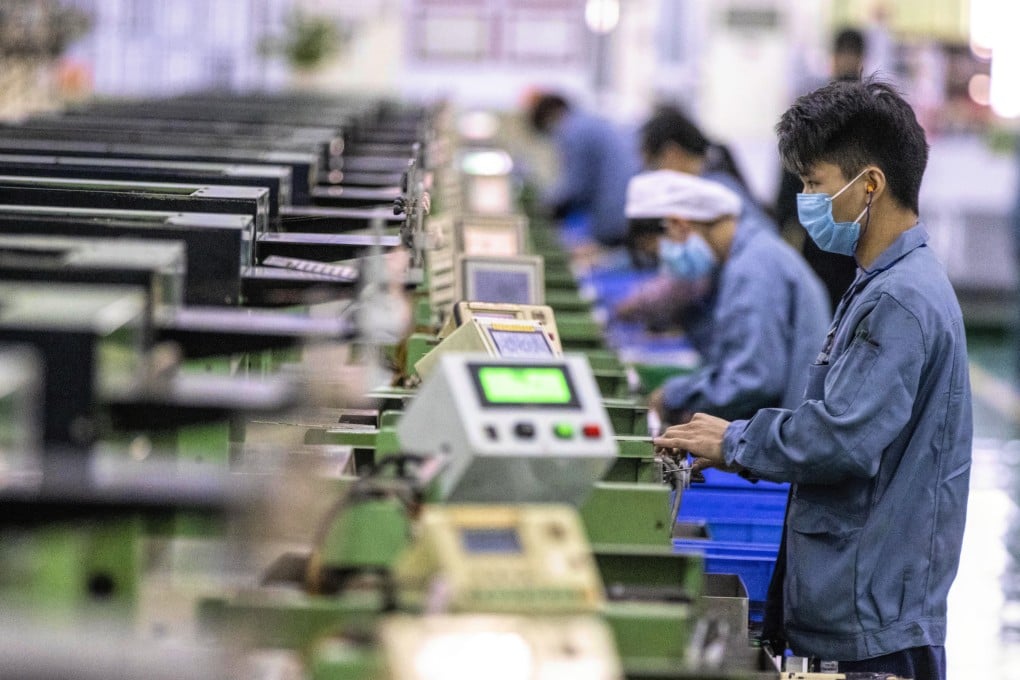Advertisement
China’s factory prices continued to fall in May, but consumer inflation slowed
- China’s producer price index (PPI) fell 3.7 per cent year-on-year in May, highlighting the ongoing impact of the coronavirus pandemic
- Consumer inflation rose 2.4 per cent from a year earlier, down from a 3.3 per cent gain in April
Reading Time:2 minutes
Why you can trust SCMP

China’s manufacturing sector continued to suffer from the impact of the coronavirus pandemic in May, as data released on Wednesday showed factory gate prices plunged at a faster pace last month.
The producer price index (PPI), reflecting the prices that factories charge wholesalers for their products, fell 3.7 per cent year-on-year in May, data from the National Bureau of Statistics (NBS) showed, the sharpest decline since March 2016.
That was worse than April’s reading of a 3.1 per cent decline and above the 3.3 per cent contraction tipped by analysts in a survey by Bloomberg.
Advertisement
The consumer price index (CPI), meanwhile, rose 2.4 per cent from a year earlier, down from a 3.3 per cent gain in April, the NBS said. Analysts had expected an inflation rate of 2.7 per cent.
As the domestic pandemic control situation was overall stable in May, production and commercial activities were restarted in an orderly fashion, which helped improve market demand and supply
Within the CPI, food prices jumped 10.6 per cent year-on-year, down 3.5 per cent from April.
Advertisement
Advertisement
Select Voice
Choose your listening speed
Get through articles 2x faster
1.25x
250 WPM
Slow
Average
Fast
1.25x